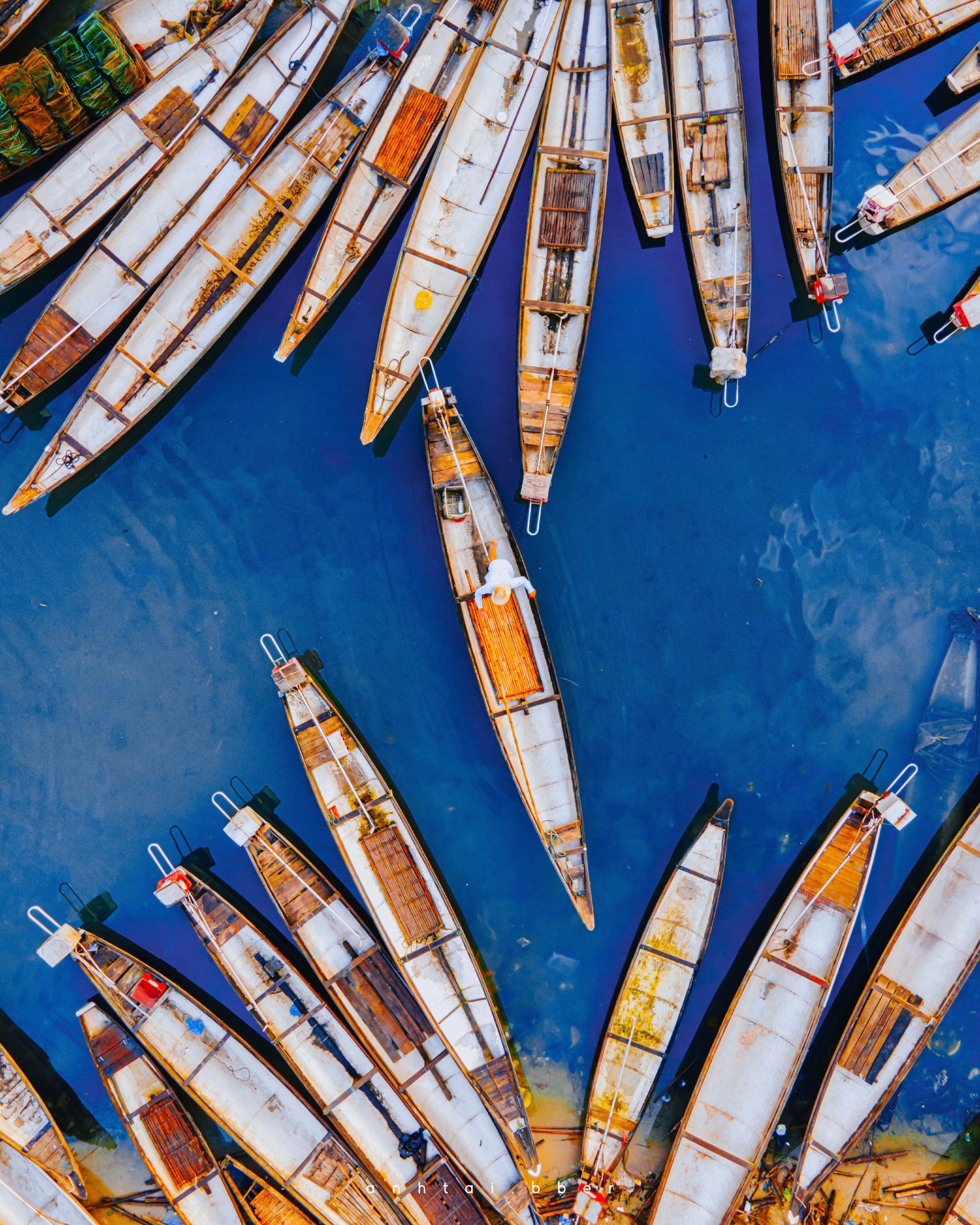A camera in hand, a creative eye and a sense of patriotism, young photographer Le Van Anh Tai travels around Vietnam to capture its raw beauty.
Anh Tai, at just 24, has been to about 30 of the country’s 63 provinces, taking the most mesmerizing photographs of natural sceneries, mostly through his drone. He has probably taken hundreds of photos, but the Quang Nam native still thinks his works have yet to fully capture Vietnam’s real splendor.
“Vietnam is a really beautiful place. I’m not sure if I’d be able to capture all of the amazing things and places in this country.”

With the truly captivating shots he’s done, and all the accolades he’s gotten from the Vietnam Association of Photographic Artists and online travel site Agoda, it’s hard to believe photography wasn’t Anh Tai’s first love. He was good at painting when he was a child, he shared, but his interest in technology drove him to studying how a camera works. While pursuing a degree in Information Technology, he took a part time job to buy himself his first camera, a Canon 50D.
Today, as Vietnam continues to fight through its worst COVID-19 outbreak, Anh Tai shares 10 of his most favorite photographs — from the creative shot of Truong Tien Bridge to the hypnotizing image of the fishermen in Quang Binh — to prove that amidst the struggles, Vietnam’s beauty remains untainted.
Bay Mau, Quang Binh

This nipa palm forest in the central city of Hoi An is the central region’s main “green tourism” destination. Bay Mau teems with life — home to different kinds of marine creatures and a poetic scenery above the waters.
Co Luy, Quang Ngai

The Co Luy estuary is where the waters from Tra Khuc, Quang Ngai’s largest river, enters the sea. This beautiful natural scenery from above —with the different colors of the water in perfect contrast to the golden sandbars — is postcard-worthy, something the province has always taken pride in.
Cua Tung, Quang Tri

With its favorable geographical location, surrounded by large and small rivers abundant with fish, one of the most common scenes in the province of Quang Tri is people drying fish in huge yards — a symbol of the people’s laidback lifestyle and proof of nature’s bounty.
Eo Gio, Quy Nhon

The heavy winds and rains, and the harsh waves have created slits across the hills, and have formed cliffs now known as Eo Gio. Considered to be “as beautiful as that of Jeju Island in South Korea”, Eo Gio is perfect for sunset watching.
Hoi An, Quang Nam

Known for its well-preserved historical architecture and slow-paced vibe, Hoi An is probably the most charming city in Vietnam. Here, you don’t have to worry about rushing through life. The quaint cafes and endearing shophouses seemingly invite people to slow down and stay calm.
Nhan Trach, Quang Binh

Vietnam’s natural landscapes are undeniably stunning. But what makes this country more incredible are its people, especially these hardworking fishermen in Nhan Trac who sail through the seas from night till dawn to have fish to sell early in the morning.
Truong Tien Bridge, Hue

Designed by the same architect who designed the famous Eiffel Tower in Paris, the Truong Tien Bridge lies in the middle of the Hue city, crossing the Huong River. The bridge does not just serve as a way for people and vehicles; it is, in fact, a witness of many of Vietnam’s historical moments, the ninth year of the Thanh Thai dynasty.
Phu Quoc, Kien Giang

Recently named by TIME magazine as one of the 100 most beautiful places in the world this year, Phu Quoc boasts the most idyllic beaches and evergreen forests in Southeast Asia. It offers people the chance to escape the bustling city of Saigon, to intimately reconnect with nature.
Son River, Quang Binh

The jade-blue water of Son River is a sight to behold. The river originates from China flowing south into Vietnam’s Cao Bang province. The whole river is about 89 kilometers long. It has become a tourist-favorite over the years, but it’s always been home to the people that depend on it for a living.
Tam Giang, Hue

The largest brackish lagoon in Southeast Asia, Tam Giang accounts for about 11% of Vietnam’s coastal lagoon. Its wild beauty gives life to the people around it, giving them resources for fishing and farming.
